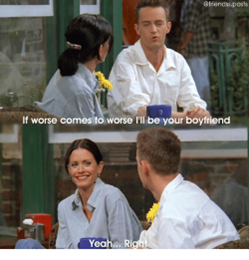Are you struggling to get a reservation at your favorite restaurant? You could always stay home and order a pizza if worse comes to worst. This post unpacks the meaning and origin of this expression.
Meaning
The expression 'if worse comes to worst' means that things are bad, but there is a chance they could get worse. It refers to many situations in life.
'If worse comes to worst' means there is a high probability of a bad situation escalating into a huge problem. The phrase is grammatically incorrect but well-understood by most English-speaking people.
Example Usage
"If worse comes to worst, my people come first. I make whole crews disperse. You know it's family first."
"If worse comes to worst, we'll have to call the coast guard to rescue us from this storm. Let's hope it passes by without hitting us."
"If worse comes to worst and the rain keeps falling, we'll have to evacuate the complex for safety reasons."
"We might need to start stockpiling food if worse comes to worst. The threat of a global famine is real, and we need to prepare."
"If worse comes to worst and Russia turns off the gas this winter, we'll have to resort to chopping and burning firewood we collect from the forest."
"There's always the option of moving to another city if worse comes to worst and the riots start again."
"We'll have to get second jobs if worse comes to worst and inflation keeps rising. Keeping up with expenses won't be possible on a single income."
"If worse comes to worst, and the client doesn't want to go for it, we can always offer it to the competition."
"We don't know how the market will react to the latest CPI report. If worse comes to worst, we'll have to rotate out of growth stocks and into commodities."


Origin
The expression ‘if worse comes to worst’ originates from the earlier version of the saying, ‘if the worst come to the worst.” Thomas Nashe published a pamphlet in 1596 titled ‘Have With You to Saffron-Walden,’ comparing death by burning to death by drowning. The phrase appears as follows.
“If the worst comes to the worst, a good swimmer may do much.”
The phrase showed up in various literary works over the coming centuries. Many notable authors used the expression in their work, including Henry Fielding, John Dryden, Charlotte Brontë, and Charles Dickens.
Daniel Defoe published ‘Robinson Crusoe’ in 1719, using the variation “If the worse came to the worst, I could but die.”
Phrases Similar to If Worse Comes to Worst
- A tough row to hoe.
- If sh*t hits the fan.
- If the worst thing happen.
Phrases Opposite to If Worse Comes to Worst
- A light at the end of the tunnel.
- It’s always darkest before dawn.
- All's well that ends well.
What is the Correct Saying?
- If worse comes to worse.
Ways People May Say If Worse Comes to Worst Incorrectly
The phrase, ‘worse comes to worst,’ is grammatically incorrect. However, it’s a common expression, and grammar rules don’t seem to stop people from using it. Using it to describe a situation with a favorable outcome is incorrect.
Acceptable Ways to Phrase If Worse Comes to Worst
You can use the expression ‘if worse comes to worst when preparing for the possibility of a bad situation worsening. For instance, you could be out on a boat in the ocean, with the chance of a storm brewing offshore. So, you’ll have to call the coast guard for evacuation if worse comes to worst.
The saying suits professional and social use. For instance, you could say that the company might have to close its doors if worse comes to worst in the economy. You could tell your friends that you might have to make a run for it to escape a mob if things turn violent and worse comes to worst.